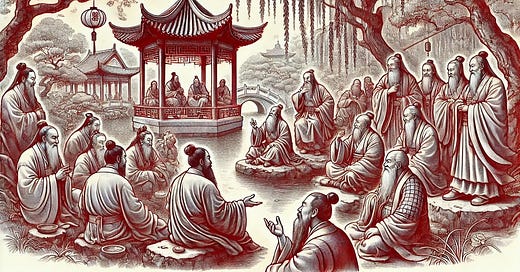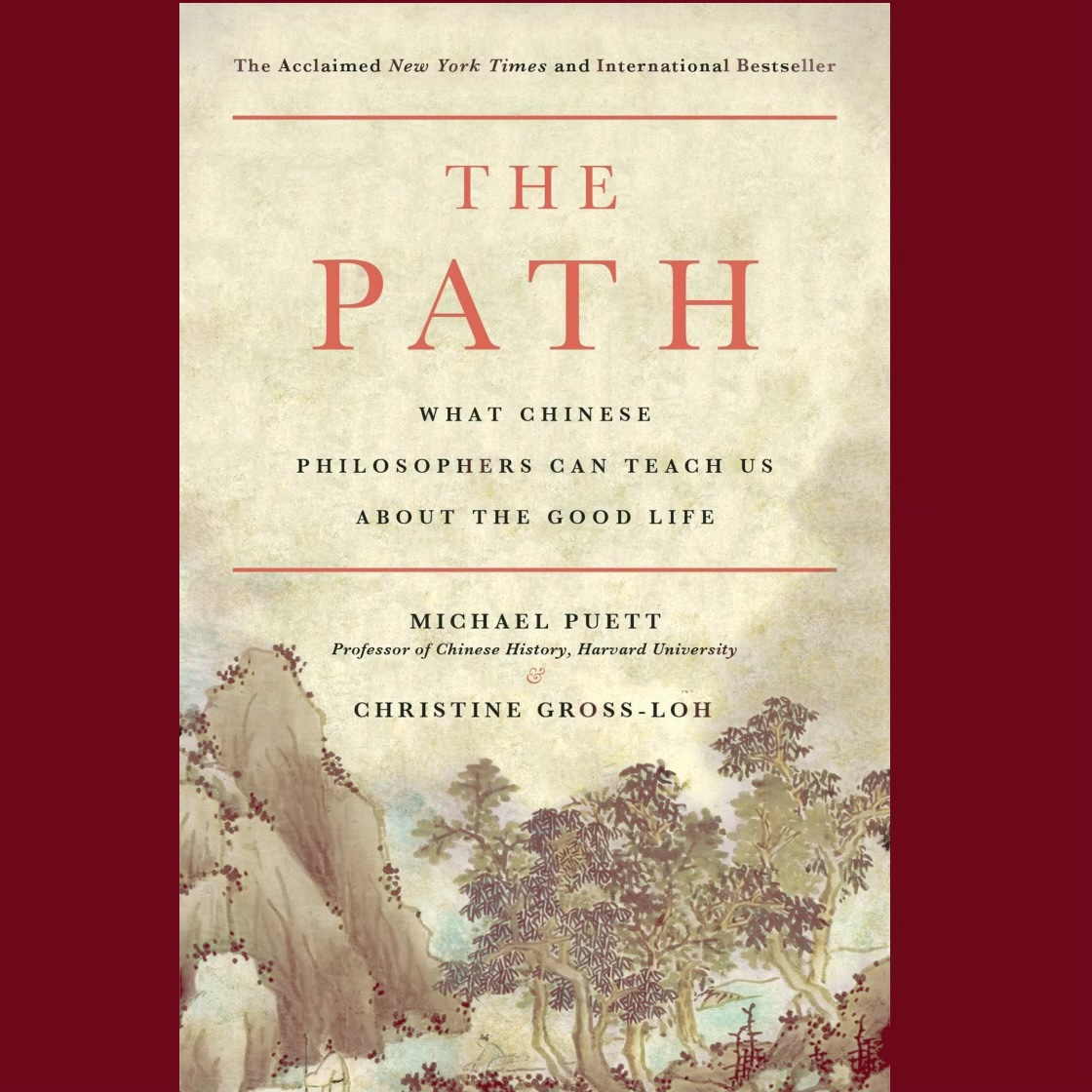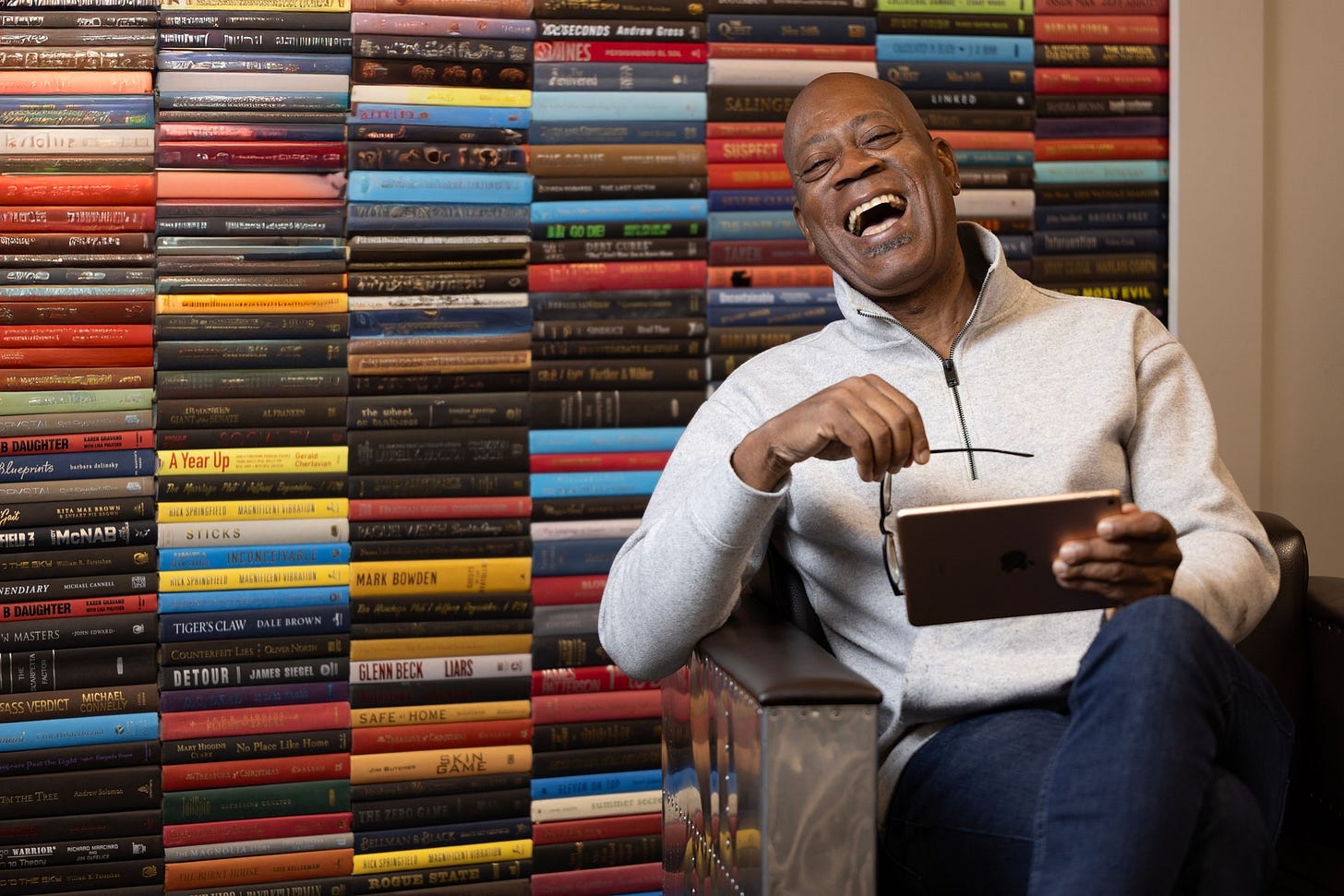I just recently completed the book “The Path: What Chinese Philosophers Can Teach Us About the Good Life by Michael Puett and Christine Gross-Loh.
Honestly, while it was a generally good read, I found it at times to be as dry as cardboard and a bit discombobulated. The flow wasn’t always smooth, the transitions between concepts felt a bit forced, and at moments, I found myself slogging through paragraphs that felt more like lecture notes than a narrative designed to grip the a reader like me.
But despite all that, I kept turning the pages. Why? Because embedded in those dense passages were breadcrumbs of wisdom—ideas that challenge our deeply ingrained assumptions about success, influence, authenticity, and self-improvement.
The book, based on Puett’s wildly popular Harvard course, unpacks the counterintuitive teachings of classical Chinese philosophers like Confucius, Mencius, Laozi, Zhuangzi, and Xunzi. These thinkers—writing more than two thousand years ago—offered insights that feel eerily prescient for the paradoxical, mysterious, and uncertain times we live in today.
Their wisdom is not about navel-gazing or discovering some singular “true self” (a modern Western obsession), but about training ourselves to respond to life in a way that cultivates new possibilities.
And in a world where long-term plans crumble overnight, where political and economic upheaval is the norm, and where social media encourages knee-jerk reactions over deep reflection, I believe that their approach might be exactly what we need.
Flipping Modern Assumptions on Their Head
Western self-help culture preaches authenticity, the power of hustle, and the supremacy of long-term strategic planning. We’re told that success comes from finding our “true calling,” exerting influence over others, and mapping out a detailed roadmap for our future.
The Path argues the opposite. Puett and Gross-Loh make the case that:
💥 Good relationships don’t come from authenticity but from ritual. The modern obsession with “just be yourself” ignores the reality that our emotions fluctuate, our personalities shift, and our “authentic” self is often reactive and unfiltered. Confucius believed that carefully cultivated rituals—small, deliberate actions—helped us become better versions of ourselves, allowing us to create richer, more harmonious relationships.
💥 Influence comes from holding back, not charging forward. In an age where everyone is trying to be louder, bolder, and more assertive, Puett highlights the ancient wisdom of restraint. True power often comes not from making the first move but from allowing situations to unfold and responding at the right moment.
💥 A meaningful life isn’t planned—it’s practiced. The Western obsession with long-term goals and grand strategies can lead to paralysis. Ancient Chinese thought suggests that real change happens in the small moments—in how we choose to engage with the world day by day, in the habits we cultivate, and in the micro-decisions that shape our character over time.
💥 There is no fixed “true self”—only endless potential. Instead of searching for an elusive, pre-existing identity, these philosophers challenge us to cultivate new possibilities through action. You don’t “find yourself” in meditation retreats or personality tests—you create yourself through how you engage with the world.
Applying Ancient Wisdom to Modern Chaos
In a time when political discourse has turned into digital warfare, when economic and career stability feel like relics of the past, and when we are bombarded with anxiety-inducing news cycles, what can The Path teach us?
⭕️ Forget Grand Strategies—Master the Art of the Small
It’s easy to feel overwhelmed by the magnitude of today’s challenges—climate change, economic uncertainty, Trump’s new executive orders, and social unrest. The impulse is to either check out entirely or try to map out a grand vision for personal and professional security. But ancient Chinese wisdom reminds us — master the small, and the big will take care of itself.
Instead of stressing about a five-year plan, focus on cultivating small, intentional actions—practicing daily rituals, developing patience, engaging thoughtfully in everyday interactions. When you do this, life unfolds in a way that’s more aligned with your highest potential than any master plan you could have engineered.
⭕️ Stop Seeking Your “True Self” and Start Practicing Possibilities
This one hit me hard. How many of us have wasted time trying to “find ourselves,” convinced that somewhere out there is a preordained life path waiting to be discovered?
The truth—according to The Path—is that the self is not fixed. It’s constantly being shaped by what we do. If you want to become more confident, don’t wait for confidence to appear—practice being confident. If you want to be a better leader, don’t wait for some magical moment of self-realization—act as if you already are one.
In the end, the person you become is shaped by the habits you cultivate, not by some mystical journey of self-discovery.
⭕️ Resist the Urge to “Win” Every Argument
Social media has turned debates into gladiator fights. We’re trained to dunk on our opponents, to “destroy” them with facts, to assert our rightness at all costs. But Laozi and Zhuangzi would laugh at this approach. They understood that true wisdom lies in knowing when not to engage.
Holding back doesn’t mean being passive—it means understanding that not every battle is worth fighting. Sometimes, stepping back allows situations to unfold in a way that leads to more meaningful resolution than forcefully asserting your stance. In an election year where political debates will reach a fever pitch, this is wisdom we’d do well to embrace.
⭕️ Power is in Stillness, Not in Noise
We live in a world that rewards those who shout the loudest. But Zhuangzi would argue that true power comes from stillness. Not inaction—but an ability to respond rather than react. To move with the flow of events instead of against them. This is Taoism’s great gift — the idea that when we let go of control, we actually gain it in a deeper, more profound way.
Why This Book Matters Now
Reading The Path wasn’t always an easy ride. The writing sometimes felt scattered, and I found myself craving a more cohesive narrative thread. But despite its flaws, this book offers something invaluable — a different way of seeing the world—one that’s deeply relevant to the uncertainty and paradox of our time.
We are conditioned to believe that life is about finding certainty, establishing control, and planning everything down to the last detail. But if the last few years have taught us anything, it’s that certainty is an illusion. The Path reminds us that flourishing isn’t about locking down our future—it’s about learning to move with the world instead of against it.
So, if you’re looking for a quick-fix, self-help manifesto, this book isn’t it. But if you’re willing to engage with its ideas, let them marinate, and apply them in small, practical ways, you might just find yourself navigating life’s chaos with a little more grace, wisdom, and ease. And in these times, that might be the best we can ask for.
If you find my nomadic wisdom valuable in helping to set a positive tone for your day, would you be kind enough to consider joining as a paid member supporter at only $6.00/month or $60.00/year.
Or feel free to tip me some dirty chai latte love here if you feel so inclined.
Every bit counts as I strive to deliver high quality feature articles into your inbox on a daily basis. Never any paywalls, just my Taoist raw thoughts which are open to everyone on what it means to be human.
Your contributions are appreciated in support of my full time work and calling.
Much Love,







We have dialogs between Confucius and Lao Tzu, recorded out of aether, I would guess, by some devoted Taoist decades after both were dead, but still it can be delightful to be served a steaming cup, lovingly prepared according to the ancient ways, and after rituals of gratitude and thanks, to take a sip and savor: tea!
Thank you.